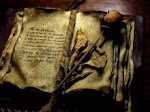In the Northeast, 10 years of crafting wealth from a notorious weed
The water hyacinth is an aggressive invasive species but efforts in the Northeast to turn it into an array of products, from bags to yoga mats, is providing a livelihood for over 3,500 artisans.
Written by Anchita Ghosh | New Delhi | Published: February 27, 2018 7:42 pm
Barnali Gogoi, 38, of Nimaijan village in Assam’s Shivsagar district had never imagined that the twists and twirls she had painstakingly given to water hyacinth stems to create a range of products, from ladies bags to yoga mats, would be appreciated across the world.
The water hyacinth has a notorious reputation of being a destroyer of oxygen and an aggressive invasive species. But for the rural artisans of the Northeast, especially women, it has been a boon for the past 10 years. Barnali Gogoi, 38, of Nimaijan village in Assam’s Shivsagar district had never imagined that the twists and twirls she had painstakingly given to water hyacinth stems to create a range of products, from ladies bags to yoga mats, would be appreciated across the world.
“I’m seeing the outside world for the first time. It has made me independent, given me self-confidence that even I can do something. I can support my husband too,” says Gogoi, manning a water hyacinth craft stall of the North Eastern Development Finance Corporation Limited (NEDFi), at the ongoing India Handicraft and Gift Fair in Exposition Mart, Greater Noida, on Sunday. A homemaker till 2014, she now trains 10 artisans at a NEDFi Common Facility Centre (CFC) in Nimaijan.
The CFC has been established by NEDFi under a one-year project sponsored by the Oil and Natural Gas Corporation (ONGC), in association with North East Women Entrepreneur Association (NEWEA). Besides, it has also opened a showroom in Shivsagar town to sell the products made by the artisans. There are two more water hyacinth showrooms in Guwahati and Greater Noida. NEDFi marketing executive Chandra Kant Das says they had trained 30 artisans of Nimaijan in the past year under the ONGC project. “Now they are commercially producing,” he says.
The NEDFi’s journey with water hyacinth, however, began 10 years ago and in due course, has changed many lives in the Northeast. It started with training 25 artisans under its CSR policy, which aimed at bringing sustainable livelihood in rural areas, and now the number has reached over 3,500, including 100 master craftsmen. They have in turn taken up the activity as a business venture, besides giving employment to their fellow artisans. NEDFi also provides them marketing links through NESHILP. In addition, a water hyacinth craft CFC set up by the Government of Assam in Morigaon district is being used by the department of industries to prepare more skilled artisans, said NEDFi Deputy General Manager (CSR Division) Ashim Kumar Das.
One such master artisan is Rita Das (43), a resident of Dhubri in Assam. From spending hungry nights to becoming a proud owner of a water hyacinth craft showroom and a training centre in Dhubri, even becoming a member of ward 16 of the town in 2009, she has come a long way since 2007. Now, she not only looks after her family of five, including two sisters, a niece and nephew, and employs 20 artisans. A chance meeting with NEDFi officials at India International Trade Fair (IITF) at Pragati Maidan in New Delhi in 2007 changed her life. Already an expert craftswoman in jute, she had come to the fair with her art work. She was chosen for a free training on water hyacinth craft for the pilot batch of 25 at Khetri in Assam in 2008. A 21-day training was conducted with the help of experts from Industree Crafts, Bangalore.
Rita said after the workshop, she started making water hyacinth crafts on her own and slowly shifted to the weed art from jute. She also got opportunities to attend some more training by experts from National Institute of Design (NID), Ahmedabad, in 2010 and those from Thailand in 2012.
She added initially NEDFi helped her market her products through different sales outlets and provided her orders from shops and online stores. They also sent her to different fairs and exhibition and provided her the required machines. “Then there was no turning back. I opened my showroom in 2012 and that is when I started having a steady income. Now, I earn around Rs 15,000-Rs 20,000 a month. I opened a training centre in 2014,” says Das, who recently returned from South Africa, after being sent there by the Assam government to attend an international trade fair.
How are water hyacinth products made?
Water hyacinth grows during July-November. The raw material is prepared by sun drying its stems; stems of 24-30 inches are preferably picked. They are sun-dried for seven to eight days. The stems are then flattened to prepare them for weaving. For non-framed products like bags, the stems are braided and stitched to give the desired shapes. For framed products like furniture, bamboo and cane frames are used. These are even weaved in looms to make products like yoga mats. For colouring, natural dies are preferred. Colours, mostly brought from Bangkok, are mixed in hot water and salt. Prepared stems are then boiled in the colour and dried for permanent colouring. For a glossy look, products are burnished with melamine. Finally, they are smoked to protect them from insects and fungus, says Barnali.
The products range from purses and jewellery boxes that cost from Rs 120, lampshades and baskets starting at Rs 400, to yoga mats, dining mats and even caps. Fashion designer Papli Gogoi also tried her hands with water hyacinth jewellery, some of which were at display at the IHGF. Barnali said bags, ranging from Rs 120 to Rs 1,200 and yoga mats are mostly in demand.
The water hyacinth journey to India
It all began with a trip to Bangkok where a team of 16 entrepreneurs, led by Ashim Kumar, attended North East Trade and Investment Opportunity Week from October 1-4, 2007. There they first saw artefacts made of water hyacinth. “I was amazed to see that water hyacinth, which was so harmful for nature, can be put to such a good use. Moreover, it is found in abundance in Northeast and so I thought there won’t be any shortage of raw material. It would also help rural artisans, especially women, I thought,” says the NEDFi DGM. “Then, I went to Bangsai Arts and Crafts Centre located on the outskirts of Bangkok to get an idea about water hyacinth works,” he adds.
The tough part, he says, was getting trainers from Thailand. “So, we contacted Industree Crafts, Bangalore, after coming back and organised two separate programmes for comparative study in water hyacinth and banana fibre crafts, as raw material for both were free. We zeroed in on water hyacinth as the raw material was in abundance and we would get better market response as it would be a new product. Besides, it would help create wealth out of weed. With banana fibre, the labour cost would be more,” says Ashim Kumar.
After that they conducted the first training in water hyacinth craft for a bunch of 25 artisans from across Northeast in 2008. But, Ashim Kumar said, they weren’t getting the right technique. So, they contacted NID, Ahmedabad, and sent artisans there for another set of training. The first programme with NID was conducted in December, 2010, on improvement in productivity and design. Then another training was conducted next year in November on weaving technique and development of surface (on which the products are weaved).
“Our long wait for better training, however, was over when I met Ayumni Fujino, UNIDO representative in India and Head, South Asia Regional Office. Her colleagues at Bangkok office helped us identify the trainers from Thailand. Finally, in March 2012, we managed to call Thai experts to India for training the local artisans. They taught the artisans their technology on the treatment of the raw material and use of mould and design,” said A K Das.
Water hyacinth craft became so popular that in 2012, the government of Assam in its budget allocated Rs 5 crore to set up a common facility centre. The same year, NEDFi also won NABARD Rural Innovation Award in the category of the public/cooperative sector. Then Union minister of finance P Chidambaram had given away the award on October 17, 2012. Water hyacinth crafts were also among the artworks that helped Assam win gold in IITF 2017. A K Das said it was a curiosity of the people on possible conversion of the menace to handicraft that helped popularise the craft.
Present scenario
NEDFi marketing executive Chandra Kant Das says that at present, there are around 3,500 artisans in Northeast involved with the craft. “Of them, over 70 per cent earned less than Rs 1,000 a month and rest were unemployed. Now, at least 10 per cent, that is around 350 artisans, earn Rs 10,000 a month and rest in the range of Rs 3,000 to Rs 5,000 per month” says Chandra Kant.
Another artisan Maya Gohain, who works at the NEDFi’s Shivsagar showroom, says she now earns Rs 15,000 a month. “Demand is good. We have received many orders, including online, from domestic as well as foreign buyers,” says Maya.
According to NEDFi, unskilled artisans, those who dry stems, get 15 paise per 26-inch stem. Semi-skilled labourers get Rs 2-4 per metre of braided stems. Skilled artisans sell their products in the range of Rs 40 for a showpiece to Rs 1,500 for a lampshade. Furniture can fetch them up to Rs 25,000.
Apart from the ONCG project, which will conclude in March, NEDFi is also assigned with training 600 women, 100 beneficiaries in six districts, under Assam government’s State Rural Livelihood Mission by 2018-19.
The craft is also spreading its wings to other parts of India. Not just people from states like Punjab, Uttar Pradesh (Pilbhit), Telangana (Hyderabad) and Tamil Nadu (Chennai), but enthusiasts from other countries like Nigeria and Sudan have come to NEDFi’s Craft Incubation Centre at Khetri to learn the art.
For all the latest Lifestyle News, download Indian Express App




















No hay comentarios:
Publicar un comentario